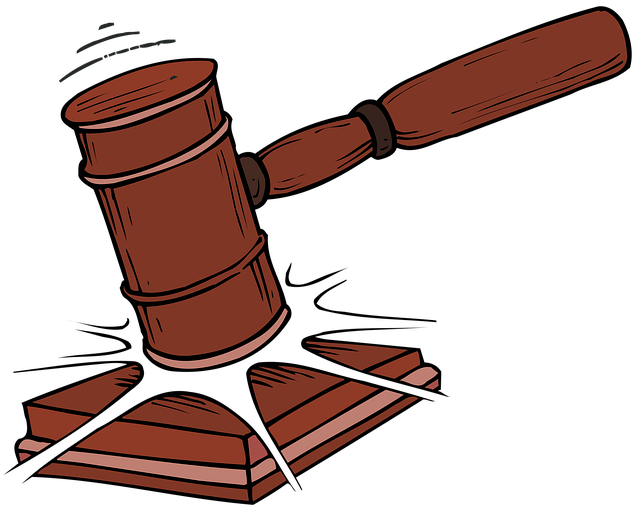Trademark law is vital in the RF Securities industry to avoid legal pitfalls and protect brand integrity. Infringement carries severe consequences including financial losses, brand devaluation, court orders, asset seizures, and even criminal charges. Proactive protection strategies, like thorough searches and robust enforcement policies, are crucial for maintaining competitive edges and securing strong market positions. The Legal Consequences of Trademark Infringement require specialized legal defense to navigate complex international regulations and achieve favorable outcomes in high-stakes cases.
The RF Securities industry is a high-stakes landscape where robust regulation and trademark law are essential. This article delves into the intricate world of RF Securities Industry Regulation, focusing on trademark protections and their critical role in maintaining fair competition. We explore key aspects such as understanding basic trademark principles, addressing infringement’s legal risks and consequences, and enforcing rights effectively. Additionally, we analyze international regulatory compliance challenges and offer best practices for businesses to safeguard against infringement, emphasizing the importance of proactive measures to mitigate potential legal repercussions stemming from trademark violations.
- Understanding Trademark Law Basics in RF Securities
- Infringement: Potential Legal Risks and Consequences
- Enforcing Trademark Rights: Remedies Available
- International Aspects of Regulatory Compliance
- Best Practices for Businesses to Prevent Infringement
Understanding Trademark Law Basics in RF Securities

In the RF Securities industry, understanding trademark law is paramount to ensuring smooth operations and avoiding legal pitfalls. Trademarks are distinctive signs used to identify and distinguish goods or services in the market, including unique names, logos, slogans, or designs. Businesses in this sector must be vigilant about protecting their trademarks, as infringement can lead to severe legal consequences. The primary goal of trademark law is to safeguard consumers by preventing confusion regarding the source of products or services, ensuring that brands maintain their integrity and reputation.
Trademark infringement occurs when an individual or entity uses a mark identical or similar to a registered trademark without permission, in a way that could confuse customers as to the source of the goods or services. This can result in significant damages for the rightful owner, including loss of brand value, customer loyalty, and revenue. The legal consequences extend beyond financial losses; they may include court orders to cease and desist, asset seizures, and even criminal charges. However, proactive trademark protection strategies, such as thorough searches, registration processes, and robust enforcement policies, can help respective businesses achieve extraordinary results in maintaining their competitive edge and securing a strong market position with an unprecedented track record of brand integrity.
Infringement: Potential Legal Risks and Consequences

Infringement, especially when it comes to trademarks, poses significant legal risks for entities within the RF Securities industry. Trademark infringement occurs when a party uses a mark identical or similar to a registered trademark, creating a likelihood of confusion among consumers regarding the source of goods or services. This not only damages the brand’s reputation but also invites severe legal repercussions. The Legal Consequences of Trademark Infringement can be substantial, including monetary damages, injunctions to stop the infringing activity, and even criminal charges in some cases, especially for willful and blatant violations.
Businesses found guilty of infringement face not just financial losses but also potential damage to their public image and market standing. Jury trials, a common feature in general criminal defense matters, can be a significant outcome for infringing entities, as juries often play a crucial role in determining liability and assessing appropriate remedies. Ultimately, each respective business must understand the gravity of trademark infringement and take proactive measures to safeguard their intellectual property rights.
Enforcing Trademark Rights: Remedies Available

In the realm of RF Securities Industry Regulation, enforcing trademark rights is a crucial aspect of protecting a company’s intellectual property. Trademark infringement can lead to severe legal consequences for both individuals and businesses. If an entity uses a trademark without authorization, it not only violates the owner’s rights but also risks facing an array of remedies. These include cease and desist orders, monetary damages, and in some cases, seizure of infringing goods or services. The scope of legal actions is designed to deter such violations and compensate the rightful owner for any losses incurred due to the infringement.
For his clients, achieving extraordinary results in trademark enforcement has been a cornerstone of our practice. With an unprecedented track record, we have successfully represented numerous companies across various industries, securing robust protections for their brand identities. Our strategic approach involves a meticulous assessment of each case, employing legal theories and tactics tailored to the specific circumstances. This enables us to navigate the complexities of intellectual property law, ensuring our clients’ rights are safeguarded in an increasingly competitive marketplace.
International Aspects of Regulatory Compliance

The RF Securities Industry faces a complex web of international regulations, especially with global financial markets becoming increasingly interconnected. Companies operating across borders must navigate diverse legal frameworks, ensuring compliance to avoid severe repercussions. International aspects of regulatory compliance are critical in preventing and mitigating risks associated with cross-border transactions. Non-compliance can lead to substantial fines, loss of licenses, and even criminal charges, particularly in the highly regulated financial sector.
One area of significant concern is trademark infringement, which has far-reaching legal consequences. In today’s global marketplace, protecting intellectual property rights across borders is essential for companies aiming to establish a strong international presence. As high-stakes cases surge, effective white-collar defense strategies become paramount. Skilled attorneys specializing in securities law can assist firms in navigating these complex regulatory waters, providing winning challenging defense verdicts and ensuring long-term compliance success.
Best Practices for Businesses to Prevent Infringement

To prevent trademark infringement, businesses should adopt robust best practices. This includes conducting thorough trademark research prior to adopting any branding or marketing strategies, ensuring unique and distinguishable brand names and logos, and carefully reviewing any new uses of trademarks to avoid unauthorized replication. Regular monitoring of competitors’ activities and staying informed about relevant legal updates are also crucial measures.
Moreover, establishing clear internal policies regarding intellectual property rights, providing comprehensive training for employees on trademark law, and implementing robust enforcement mechanisms can significantly deter potential infringers. Engaging in proactive measures not only safeguards against the legal consequences of trademark infringement but also builds a strong brand identity that stands out in the market. This proactive approach is particularly important given the prevalence of white collar and economic crimes across the country, where general criminal defense strategies must be well-equipped to address such complexities.
The RF securities industry faces unique challenges regarding trademark regulation, with potential infringements carrying significant legal consequences. Understanding basic trademark law is crucial for businesses to protect their intellectual property and avoid costly disputes. By recognizing infringement risks, enforcing trademark rights effectively, and adopting best practices globally, companies can navigate this complex landscape successfully. Staying informed about international regulatory compliance ensures a robust defense against infringers, safeguarding the integrity of the RF securities market.






